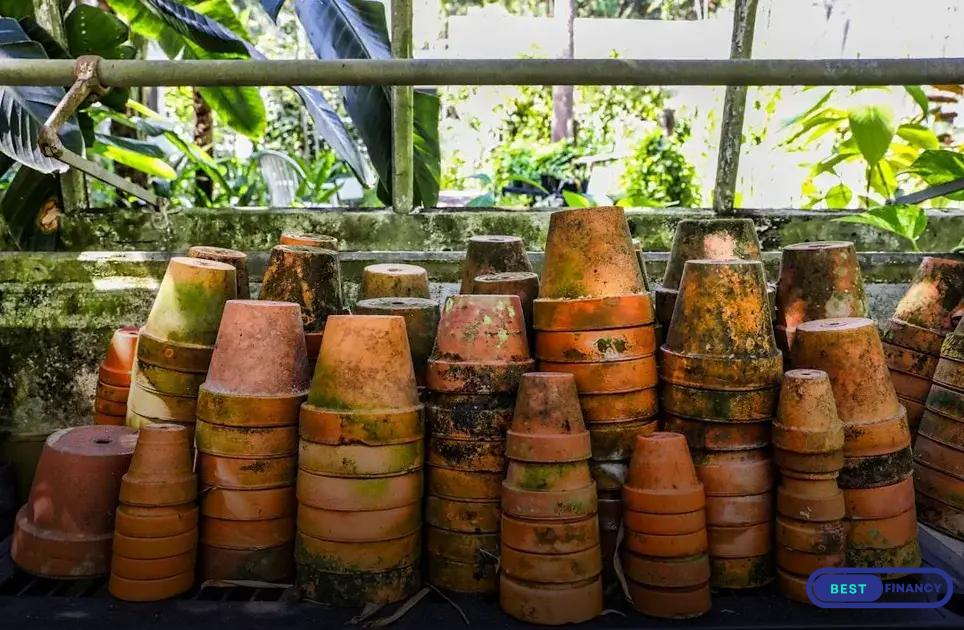Dealing with garden pests naturally is a significant step towards maintaining an eco-friendly and healthy garden. Instead of resorting to chemical pesticides, you can employ natural strategies to keep pests at bay. This not only protects the environment but also preserves the balance of your garden’s ecosystem. In this post, we’ll explore effective methods for managing garden pests using natural solutions. Each section will guide you through identification, prevention, and treatment of common garden nuisances. Let’s dive in and explore how you can have a thriving garden without harmful chemicals.
Identify Common Garden Pests
In the realm of identifying garden pests, recognizing the signs and symptoms of pest activity is crucial. Begin by inspecting your plants regularly. Look for leaves with holes or ragged edges, as these can indicate pests such as caterpillars or beetles. Sticky residue on the leaves might suggest an aphid invasion, while distorted or discolored leaves could signal the presence of leaf miners or thrips. Moreover, check the soil and the underside of leaves where many insects like to hide.
To accurately identify these garden pests, it helps to understand their preferences and behaviors. For instance, snails and slugs are more active at night and are drawn to moist, shady areas. Keep an eye out for their shiny trails as evidence of their visit. Conversely, small, white moths fluttering around plants often indicate the presence of caterpillars that chew on foliage.
Equally important is learning to distinguish between harmful and beneficial insects. While pests like aphids and spider mites damage plants, ladybugs, and lacewings prey on such pests and aid in their control.
Using a field guide or mobile apps can help in quickly identifying garden pests. Such tools provide images and descriptions that make it easier to pinpoint the exact nature of the intruder. Familiarizing yourself with the most common pests not only assists in prompt identification but also aids in effective management.
Finally, creating a journal or database of historical pest infestations in your garden can provide insights for future reference. Documenting patterns and seasonal appearances can help in developing a proactive pest management plan.
Natural Pest-Repellent Plants

Integrating natural pest-repellent plants into your garden is a strategic way to protect crops without relying on chemicals. Many plants produce natural oils and scents that can deter pests.
Lavender
is renowned for its soothing scent to humans but acts as a repellant to mosquitoes, flies, and moths.
Marigolds
produce a scent that deters nematodes and other garden pests, making them an excellent companion for vegetable gardens.
Using herbs like basil, mint, and rosemary can be doubly beneficial, as these plants are useful in the kitchen and effective at repelling flies and mosquitoes.
Chrysanthemums
contain pyrethrum, a natural insecticide used to repel a wide array of insects, including roaches, fleas, and ticks.
Planting garlic and onions around the perimeter of your garden can deter aphids, spider mites, and Japanese beetles, thanks to their strong scent. Incorporating these pest-repellent plants into your gardening strategy not only protects your plants but also enhances the garden’s biodiversity.
Homemade Organic Remedies
When it comes to safeguarding your garden from unwanted pests, homemade organic remedies are a practical and eco-friendly approach. These remedies utilize natural ingredients easily found at home or in nature, making them safe for both plants and the environment. Garlic spray is one such solution, known for its effectiveness in repelling a variety of insects. To create it, blend a few cloves of garlic with water, strain the mixture, and spray it on affected plants.
Another potent remedy is the neem oil solution. Neem oil, extracted from the seeds of the neem tree, acts as a natural pesticide. By mixing a small amount with water and a few drops of dish soap, you can apply it directly to plants to deter harmful bugs.
Coffee grounds offer a dual benefit; they enrich the soil and deter pests like slugs and snails. Simply sprinkle the used grounds around the base of your plants to create a natural barrier. Similarly, diatomaceous earth acts as a mechanical insecticide. This fine powder, composed of fossilized remains, dehydrates pests upon contact. Dust a thin layer on the leaves of your plants to protect them from soft-bodied insects.
For a fragrant yet effective solution, consider using herb-infused sprays. Boil herbs such as mint or rosemary, strain the solution, and apply it to plants. The strong aromas repel insects while simultaneously nurturing your garden.
Alternative Solutions
In addition to these remedies, soap sprays crafted from mild dishwashing soap and water can help eliminate aphids and mites. Ensure the solution has a concentration mild enough to avoid any potential plant damage.
Exploring these homemade remedies not only ensures the health of your garden but also supports a sustainable approach to gardening, keeping harmful chemicals at bay.
Encouraging Beneficial Insects

One effective way to manage pests naturally is by encouraging beneficial insects to inhabit your garden. These insects, like ladybugs, lacewings, and certain wasps, are natural predators of many common garden pests. By attracting them, you create a dynamic ecosystem where pests are naturally kept at bay.
Ladybugs, for example, feast on aphids and mites, while lacewings are known for consuming a variety of pest eggs and larvae. To attract these helpful allies, consider planting flowers like marigolds, sunflowers, and daisies. These plants provide pollen and nectar, vital food sources that beneficial insects need to survive.
Additionally, avoid using broad-spectrum pesticides that can harm these beneficial creatures. Instead, opt for organic pest control methods outlined in other sections, such as natural pest-repellent plants or homemade organic remedies. Creating an inviting habitat by providing water sources, such as a shallow dish with stones for drinking, can further encourage these insects to take up residence.
Moreover, cultivating a variety of plants increases biodiversity, which attracts a wider range of beneficial insects. By doing so, you enhance your garden’s resilience against pest infestations.
Implementing these strategies can help maintain a healthy garden ecosystem where beneficial insects thrive, creating a natural balance that limits the impact of harmful pests without the need for chemical interventions.
Maintaining a Healthy Garden Ecosystem
Maintaining a thriving garden ecosystem is essential for promoting the health of your plants and naturally managing pests. To support a balanced ecosystem, ensure you have diverse plant species that attract beneficial insects like ladybugs and lacewings. These insects act as natural pest control, preying on harmful pests.
Regularly inspect the soil quality and keep it fertile with compost, which not only nourishes plants but also encourages earthworms that help aerate the soil. Use appropriate mulching techniques to retain moisture, suppress weeds, and provide a habitat for helpful microorganisms.
Avoid over-tilling as it can disrupt soil structure and kill beneficial organisms. Water your garden wisely to avoid creating an environment conducive to pests that thrive in overly wet conditions. Consider incorporating a drip irrigation system to efficiently deliver water to the roots without wetting the foliage.
Plant a variety of flowers and herbs known for their pest-repelling properties, such as marigolds, lavender, and basil. These plants can deter harmful insects and contribute to the biodiversity of the garden.
Lastly, maintain healthy garden practices by pruning dead or diseased branches, which can harbor pests, and ensuring there is enough space between plants for adequate air circulation.


 Hosting a Garden Party: Nature-Inspired Decor Ideas
Hosting a Garden Party: Nature-Inspired Decor Ideas  Outdoor Lighting Ideas: Highlight Your Garden at Night
Outdoor Lighting Ideas: Highlight Your Garden at Night  Incorporating Water Features into Your Garden: A Splash of Tranquility
Incorporating Water Features into Your Garden: A Splash of Tranquility